The ever-growing digitisation of social spaces has led to a rise of children being exposed to sexual exploitation and abuse. We must stand against exploitative systems, patterns, and social norms that continue to deny children access to their basic human rights. We cannot look away and ignore the issues that underpin why children do not disclose their abuse, only confide in each other, mistrusting that the adults around them will hold criminals accountable and help them.
Evidence from our primary research in Asia and Africa shows that we largely fail to support the rights of girls and boys who are sexually exploited. With the data in hand, we know what we must do. We must move to an era of implementation where we ensure that policies, commitments, and the law reaches all children and their communities.
In the one year since our last annual report, the world has been home to numerous conflicts, a war, subsequent mass displacement of people, and numerous humanitarian crises, all of which have significantly contributed to further exposing vulnerable children to trafficking, child marriage, and exploitation.
Mr. Guillaume Landry
Executive Director, ECPAT International
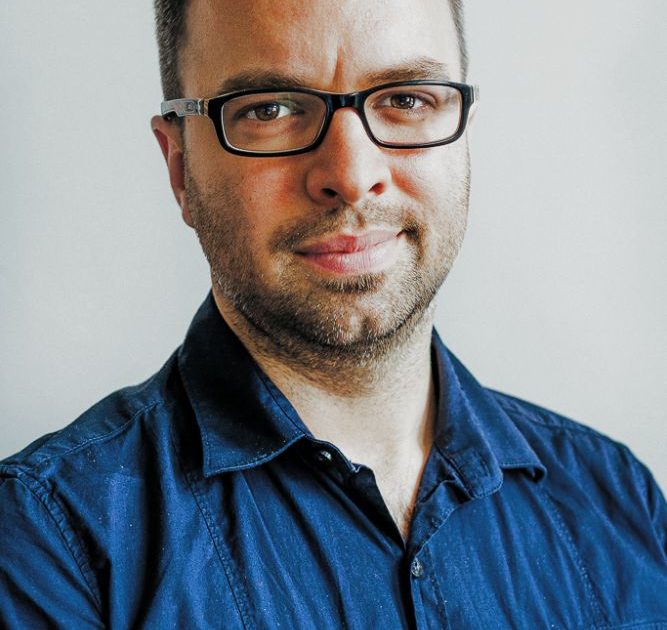
We advocate for the critical systemic and social changes necessary to end the sexual exploitation of children and work with governments, intergovernmental institutions, the private sector, civil society, and the general public, to ensure that the voices of children, their rights, and their needs, are heard and reflected in society.
We look to address the sexual exploitation of children in all its settings, including child sexual exploitation through prostitution; trafficking; child early and forced marriage, online and in the context of travel and tourism. In 2021, we laid down the blueprints for an innovative path towards a world where all children are free from sexual exploitation. Read the 2021 –2025 ECPAT Strategic Framework here.
We are pleased to share with you this year’s Annual Report, highlighting ECPAT’s accomplishments from July 2020 to June 2021.
Over the last year, as a network, we had to reevaluate our tools, practices, and approaches for dealing with the sexual exploitation of children, and adapt to the new risks that emerged during the COVID-19 pandemic. Find out how we fared. Read our previous Annual Report:
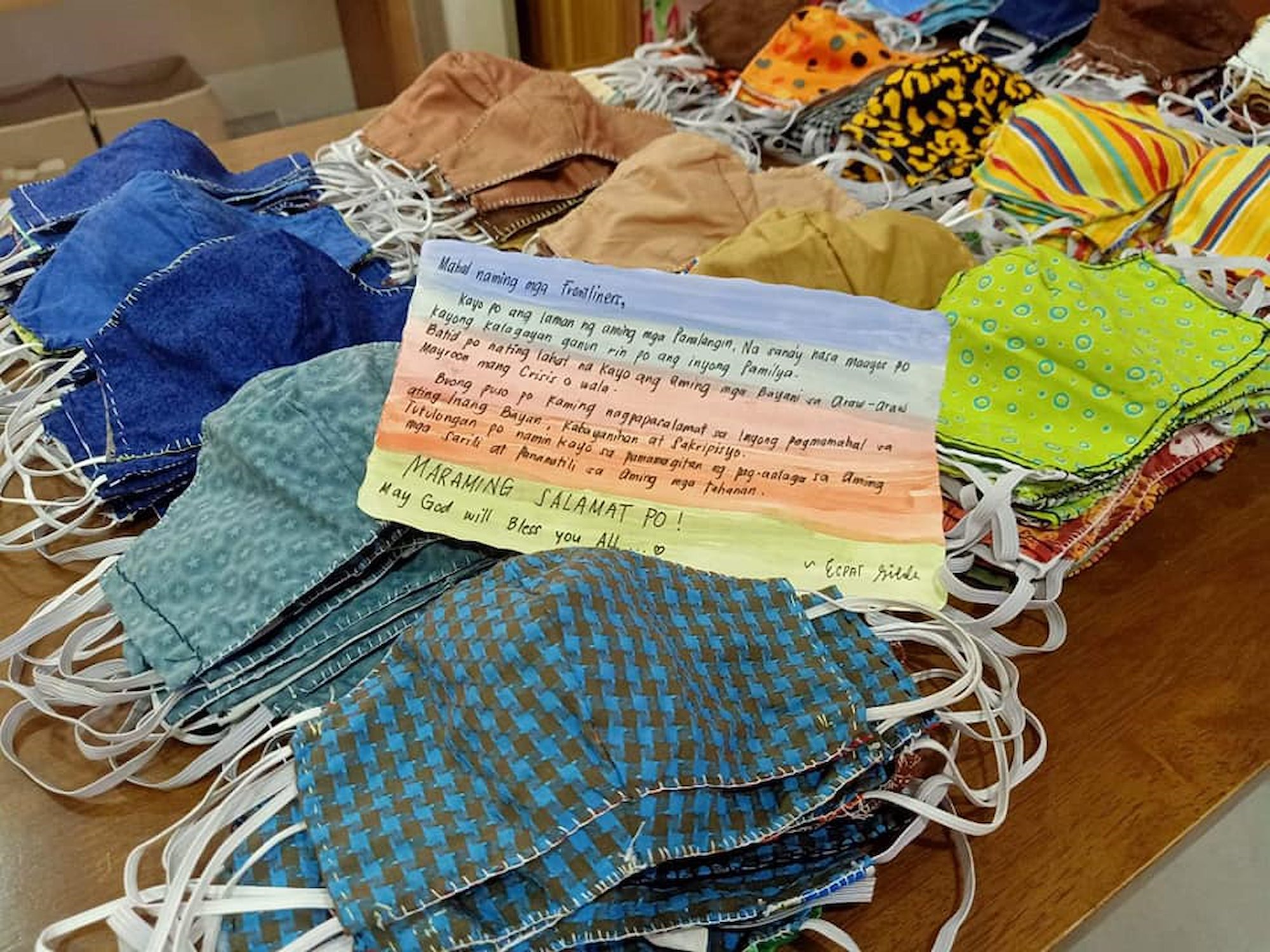
It’s almost unbelievable to imagine that time last year, lockdown measures forced 83% of ECPAT’s member to either fully or partly close their physical offices. This meant that all of our members had to adapt their services and offerings to online platforms, but still maintain the same quality and care. In doing so, not only did we discover new and innovative ways to reach vulnerable children, but we’ve also uncovered ways through which children were being targeted by criminals.
This Annual Report cannot do justice to the scale of this year’s accomplishments, the things we have learned, or the ways we have grown as a global membership. However, it serves as a testament to the number of collective and individual achievements of our work across the world over the previous year. We encourage you to get to know our members:
“Our network continues to join efforts to lobby governments and those in power for change. We owe to children everywhere to ensure that they have a childhood free from sexual abuse and exploitation”
– Thomas Muller, Director of Network Development
The sexual exploitation of children is a global issue. No country is immune. Around the world, each country tackles this issue through their own sovereign laws, policies, and measures. However, it is oftentimes difficult to assess just how effective these diverse measures are.
That is why ECPAT developed the Global Progress Indicators (GPI). It is a centralised way to monitor and measure national responses to child sexual exploitation. Displayed as an interactive world map, the GPI currently comprises of 9 indicators, which include both laws to measures, that research has shown are essential to the protection of children.
The GPIs also allow ECPAT members to continue to play their vital role in lobbying for more robust child protection policies in their countries, monitoring government actions, and ensuring up-to-date information is reflected on the GPI map. That is why feedback on the current GPI’s effectiveness and suggestions for new indicators is also a key focus of this initiative.
Here are some highlights from our members:
We collaborated on International Days with a whole host of civil society organisations and other non-profits, in our mission to end child sexual exploitation. This has allowed us to join forces, as we have participated in high-level meetings, key events, and calls to action to improve child protection, and show our support for worldwide movements.
Interact with the highlights of 2021:
From the impacts of the travel and tourism sector on child sexual exploitation to the role that gender norms play when it comes to child sexual abuse, to why we need legal tools to ensure child protection and online child safety. Bringing together the countless voices of our global membership is key for us. During the year, we have collected and shared stories that highlight our projects as well as that of our members.
For instance, in the last year, ECPAT brought the topic of child protection in travel and tourism to the discussion on sustainable travel and tourism development at the World Travel and Tourism (WTTC) Summit; we were part of a consortium of influential stakeholder which presented a letter to Apple; and held governments and officials in the European Union Parliament accountable on critical decisions regarding legislative reforms. We have covered much ground through Disrupting Harm, a multi-country project across the major regions of the globe, to show gaps in legislation, provide recommendations, and make advances on protection of children online. Equally important, recognizing that limited work was being done to address sexual exploitation of boys, through The Global Boys Initiative, we are taking a central role in bringing their voices and experiences to a larger audience.
These are our top stories for 2021:

Every gift, grant, and donation matters. Thanks to the generosity of our donors, from individuals to foundations to governments, we can work on giving children and young people a chance to achieve their full potential and empower healthy communities. We take this opportunity to once again thank our donors for their support and belief in the ECPAT vision. and for standing in solidarity with us in ending the sexual exploitation of children.
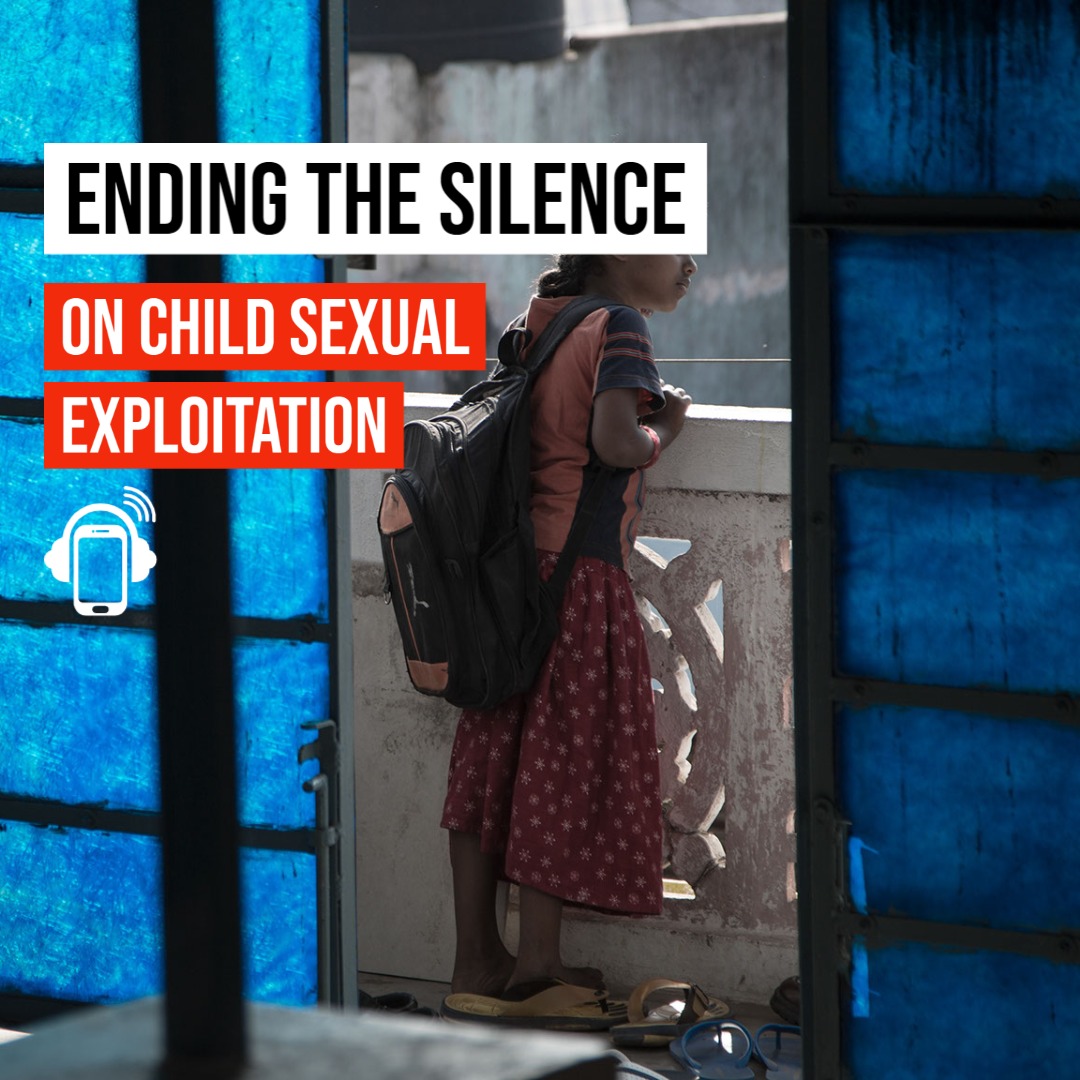
Ending the Silence on Child Sexual Exploitation is a podcast by ECPAT International. In our podcasts, we share what we know about emerging issues, what is being done to tackle the problems, how children are affected around the world, and what you can do to support the fight to eliminate this crime. Episodes produced this year feature ECPAT’s research team sharing insights from the Global Boys Initiative: South Korea and Hungary reports, as well as the ECPAT Country Overviews on Peru, India, and the Democratic Republic of the Congo.
ECPAT’s Executive Director joined Denver Frederick, host of The Business of Giving Podcast, in a discussion on ECPAT’s work, the impact of our members, and the global trends ECPAT’s research has uncovered in the field of child sexual exploitation. We’re thrilled to announce the launch of a new mini-series on She Leads—a programme dedicated to amplifying the voices of girls and young women in decision-making environments. Launching late 2022.
The COVID-19 pandemic has accelerated the expansion and diversification of children’s digital lives. It was estimated that, in 2021, almost 60% of the world’s population were connected to the internet. Children remain the most eager adopters of the new technologies with an estimated one in three internet users being below 18 years of age. Concurrently, there has been an increase and expansion of the ways that technology can be used by adults to harm children, as well as by children and adolescents to harm other children. ECPAT first began to understand the challenge of Online Child Sexual Exploitation (OCSE) in the late1990s and has been working on the issue ever since. Today, as Internet access and technology has evolved beyond recognition and continues to evolve, ECPAT works more than ever to address this challenge. Here are some highlights from this year of two of our key projects dedicated to ending OCSE, Project Beacon and Disrupting Harm.
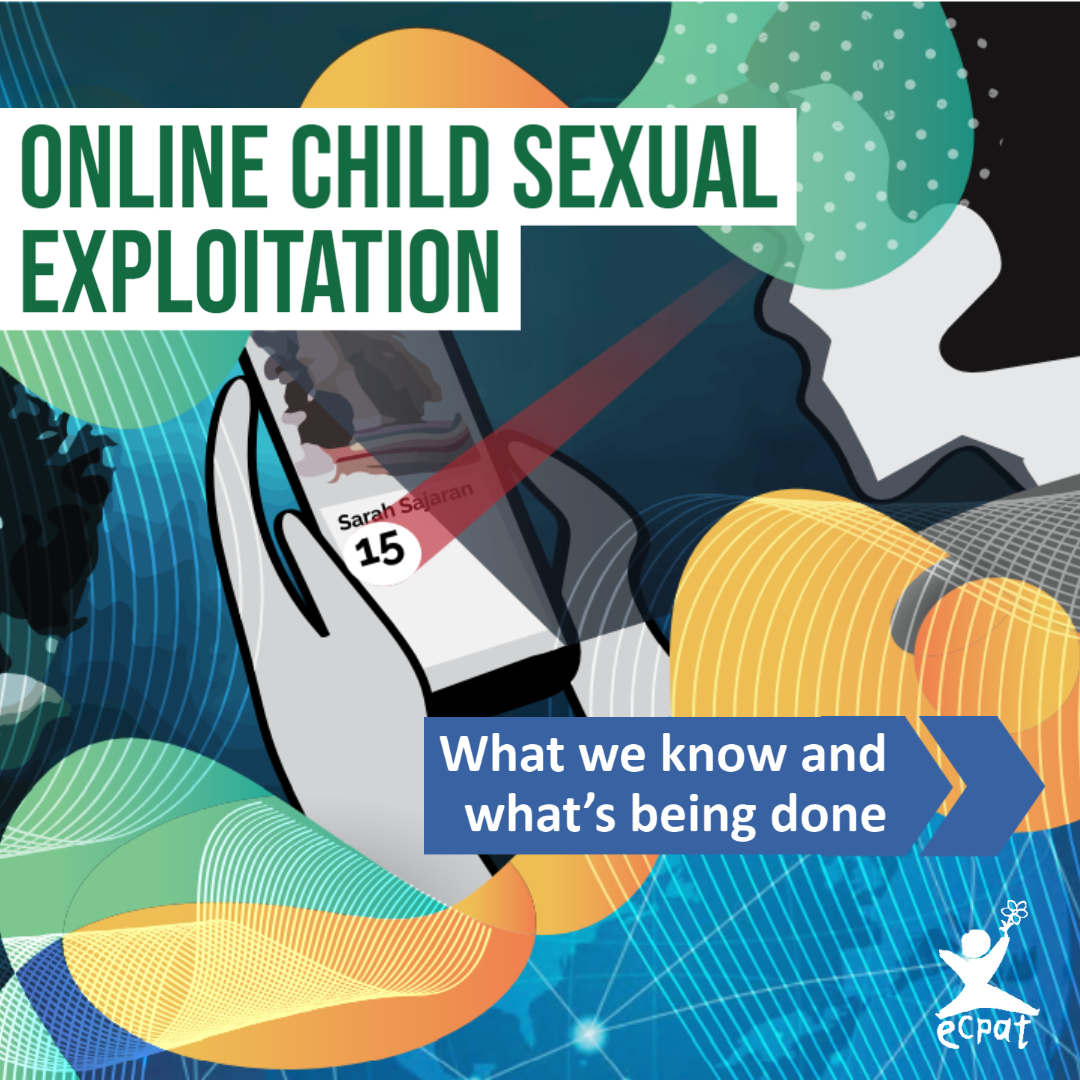
Developed as a response to the concern regarding the changes to European policy around digital rights in late 2020, Project Beacon is a special project that was formed to ensure tackling child sexual abuse materials (CSAM) remains a priority for EU policymakers, despite the numerous changes in privacy legislation. Supported by the Oak Foundation, and implemented by ECPAT International together with our European member organisations, aims to influence the adoption of unified policies, regulations, and a robust legal framework that reflect child protection concerns across digital spaces and encrypted environments. Click to find out more.
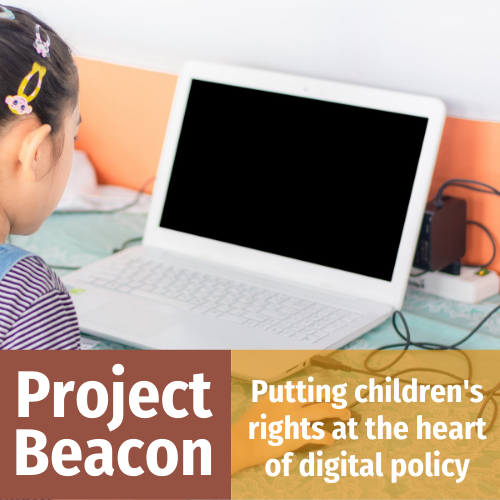
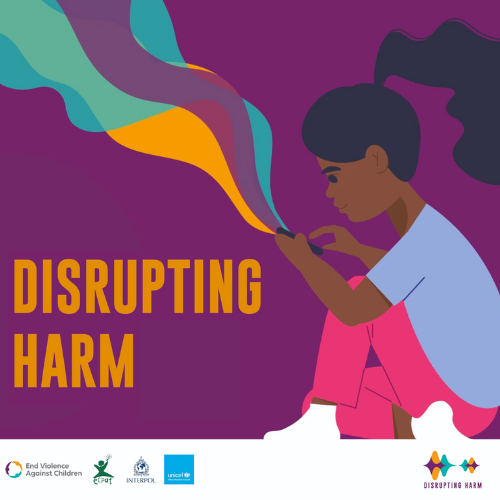
Disrupting Harm is a multifaceted research project on online child sexual exploitation and abuse. Funded by the Global Partnership to End Violence against Children, ECPAT International leading this unique collaboration with INTERPOL and the UNICEF Office of Research – Innocenti, assesses the context, threat, and children’s perspectives of online child sexual exploitation and abuse in 13 countries in Southeast Asia and Eastern and Southern Africa. Disrupting Harm will also highlight the current response to OCSE and issue clear recommendations in both regions, as well as individually for Cambodia, Ethiopia, Indonesia, Kenya, Malaysia, Mozambique, Namibia, Philippines, South Africa, Tanzania Thailand, Uganda and Vietnam. Click to find out more.
Our campaigns to end online child sexual exploitation and abuse
Project Beacon has been running since late 2020, and our advocacy and campaigning work in this area has continued to evolve and gathered pace throughout 2021 and 2022. We have primarily focused our efforts on two stakeholder groups: online service providers and law and policy makers in the EU and Member States. For example, in September 2021, ECPAT coordinated a CSO letter to encourage Apple to follow through on its proposal to introduce new technological measures to detect CSAM being uploaded from Apple devices to iCloud. More recently, after the European Commission released a proposal to prevent and combat child sexual abuse in Europe the European Commission released a proposal for a Regulation to prevent and combat child sexual abuse in the EU on 11 May 2022, ECPAT is actively working with the European Commission, CSOs in the EU and beyond, and its own members across the EU to advocate for the change needed to ensure children’s rights are at the heart of this proposed regulation, and all digital policy in the EU. To amplify our messages and those of other CSOs working on these issues in the EU, ECPAT also joined 13 other civil society organisations, we recently joined the #ChildSafetyShouldntStopOnline campaign with the aim of raising awareness on the issue and call on the #EU to ensure online spaces safer for children.
These examples demonstrate the need for online service providers and governments to take active measures to ensure child safety, and that a landscape where tech companies are able, are expected to and are obliged to do more to protect children online is possible. And because upholding the rights of victims and survivors drives our work, we continue to call for improved global coordination and collaboration between governments, law enforcement and professionals supporting child victims of online sexual exploitation.

The growth of all forms of travel and tourism – be it mass tourism or community and local tourism – carries various risks to children, but if regulated these can be mitigated. We need to shift the perception that addressing risks associated with the sexual exploitation of children is a negative story that the industry does not want to associate with tourism. The focus should first be on prevention, and working with children and communities to prevent sexual exploitation of children should be seen a positive narrative that can draw attention and business. While increasing attention has been given to the sexual exploitation of children in travel and tourism over the last years, more action is needed, and a broader range of actors need to be mobilised to “rethinking tourism” and effectively protect children, while addressing this crime in relation to drivers of exclusion, migration, labour, and online exploitation and abuse of children.
To adequately address the sexual exploitation of children during this recovery phase, our priorities for action have included: evidence-based awareness raising, advocating for improved laws and policies and their enforcement, capacity-building for travel and tourism professionals, with comprehensive and sustainable prevention through proactive engagement of the private sector and other actors. With travel restrictions easing and more countries opening up for international visitors, engagement with the general public through awareness-building campaigns has also been a key focus area.
The Code (short for “The Code of Conduct for the Protection of Children from Sexual Exploitation in Travel and Tourism”) is a multi-stakeholder initiative that provides business and organisations within the tourism sector with the critical knowledge and tools needed to prevent the sexual exploitation of children.
In the past year, we’re pleased to welcome on board 25 new member companies from 12 different countries!
The Code members are supported with the tools and knowledge needed to protect children from sexual exploitation. In mid 2021, we launched new Code e-learnings, offering all member companies access to online training modules for 10 different employee profiles in 10 languages, with real life case scenarios.
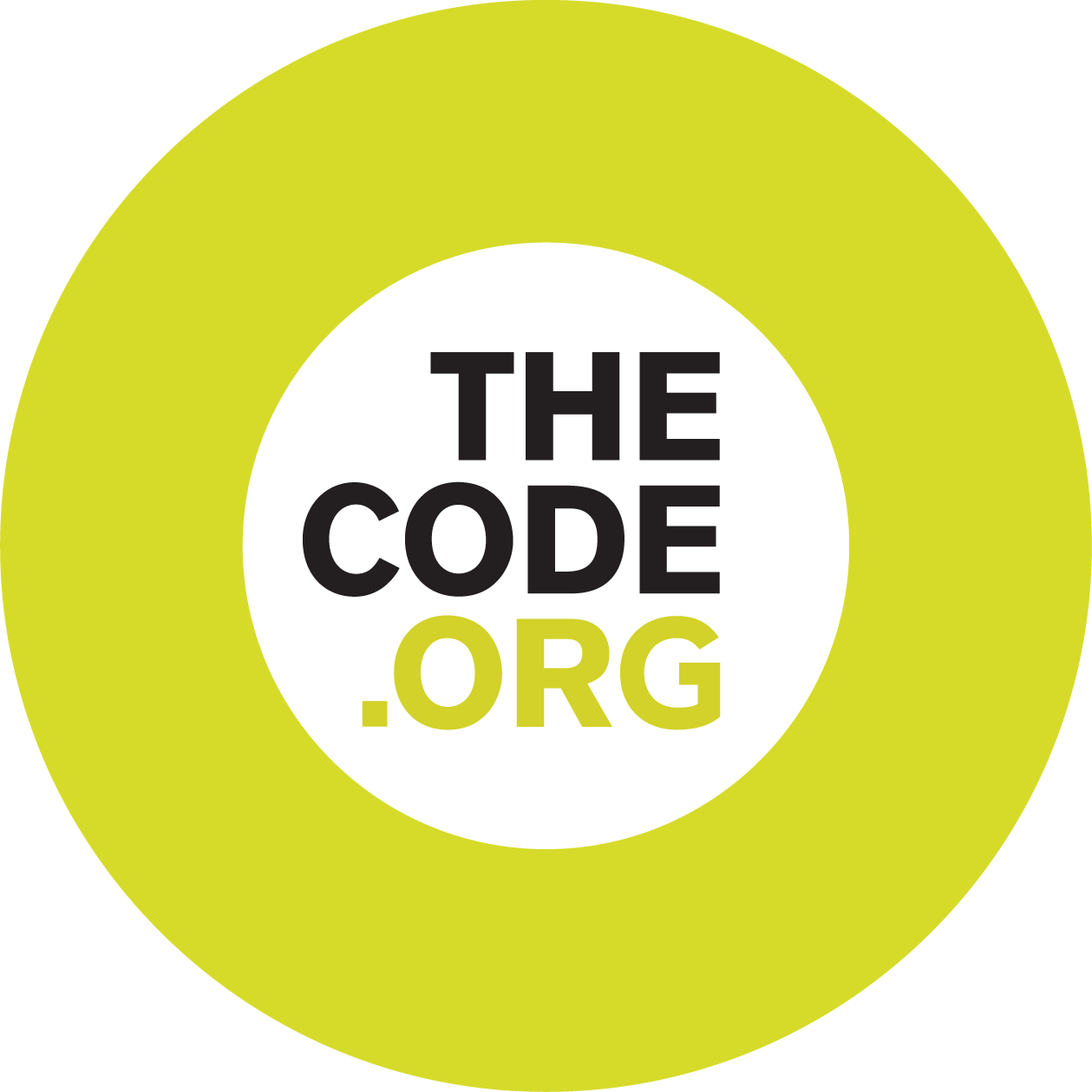
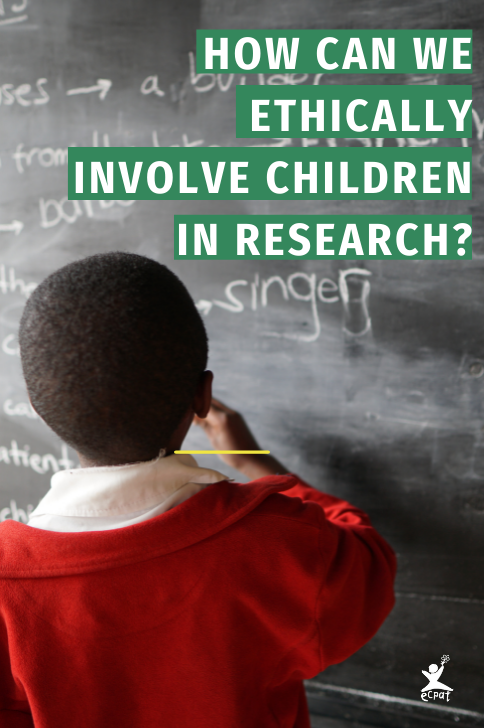
Launched in late 2020, the ECPAT Summary papers have continued to provide key insight into what we know about the manifestations of child sexual exploitation.
Sexual Exploitation of Children in Travel and Tourism
Child, Early and Forced marriages as a form of, or pathway to Sexual Exploitation of Children
Online Child Sexual Exploitation
Sale and Trafficking of Children for Sexual Purposes
Sexual Exploitation of Children in Prostitution.
Unbeknownst at the time, the strong data and insights provided, has allowed for, in collaboration with in-country partners, more targeted and robust local research. Our rolling country analysis, otherwise known as the ECPAT Country Overviews (or ECOs), have been published for Albania and Hungary. In both reports we explored how child marriage and children living in institutions are at risk of sexual exploitation.
The ECPAT research team also coordinated design, ethical review and extensive data collection in 30 countries. Conversations with child survivors, surveys with frontline social support workers, and interviews with government representatives, police, legal professionals and other experts informed our multi-country projects:
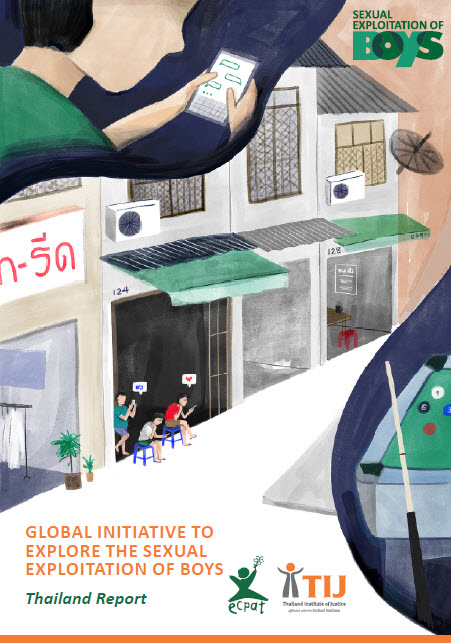
Global Initiative to Explore the Sexual Exploitation of Boys – Thailand report
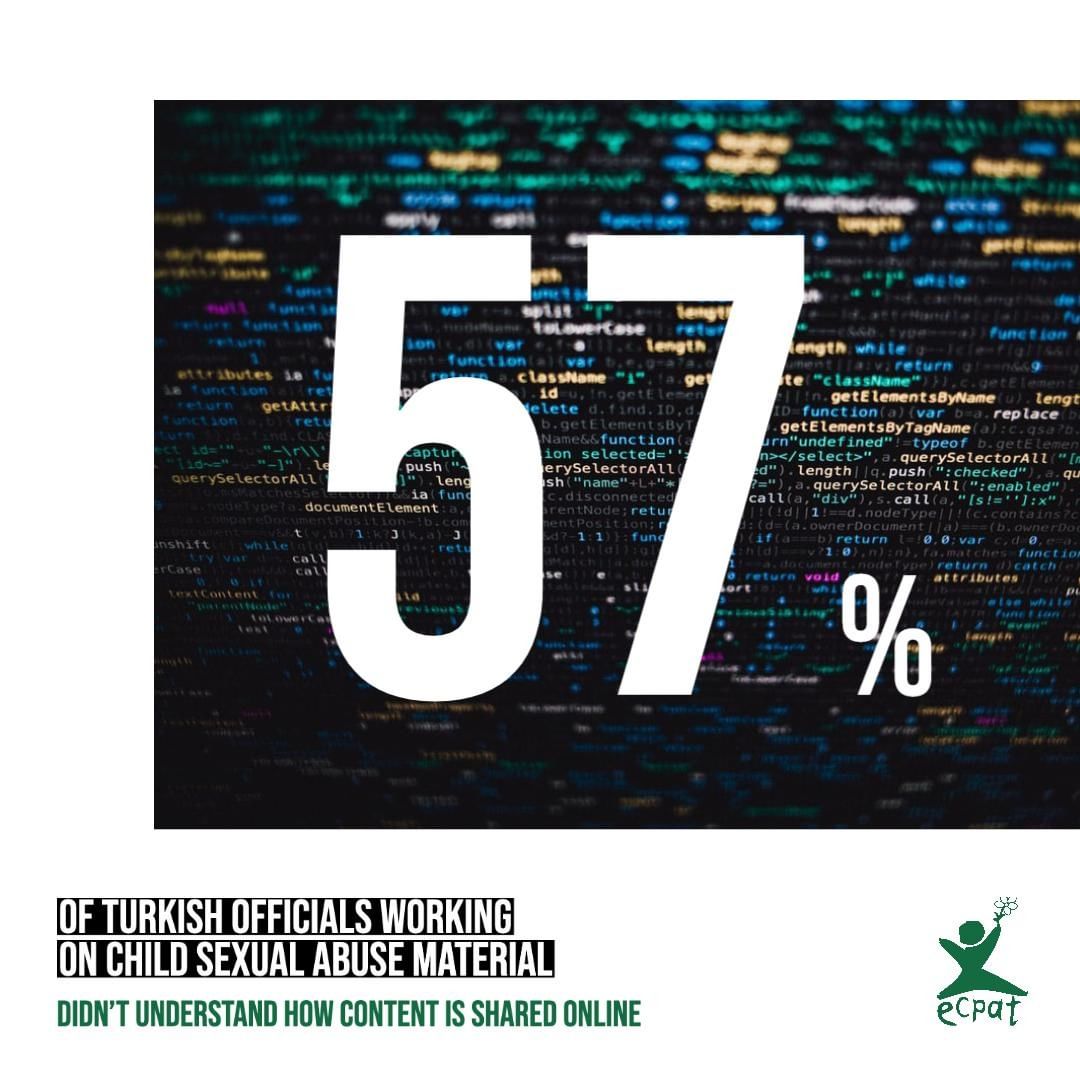
ECPAT: Proposed Turkish bill legitimises child marriage, statutory rape and impunity of offenders
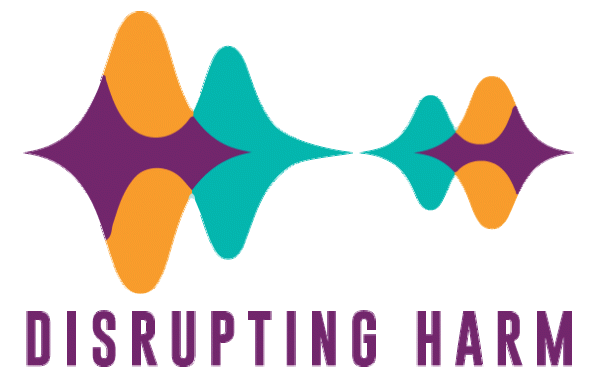
The partnership brought together and funded three global organisations to undertake new research in 13 countries across Eastern and Southern Africa and Southeast Asia.
In response to the needs of our global network members, we have continued to explore adaptive ways to continue to push for children’s rights, culminating in a new and ambitious Strategic Framework. Several of our current projects continue to tackle the cross-cutting theme of online sexual exploitation of children, including both Disrupting Harm, Project Beacon, and Survivors Perspectives.
Thanks to the support of Bread for the World (Germany), the ECPAT Secretariat, together with our member organisations in Bolivia, Cambodia, Kenya, Moldova, Nepal, Pakistan, Peru, South Africa, and Uganda, have implemented phase 1 of the Access to Justice initiative. This project is aimed at assessing the barriers and opportunities in selected countries for child victims of sexual exploitation to access justice, and to advocate towards improved access to justice. During phase 1, ECPAT assessed the current legal response to child sexual exploitation in each of these countries and is currently preparing dedicated national stakeholder engagement workshops in all countries. Eventually, the project will deliver clear and targeted advocacy roadmaps, and a coordinated effort to empower civil society in these countries to implement those.
